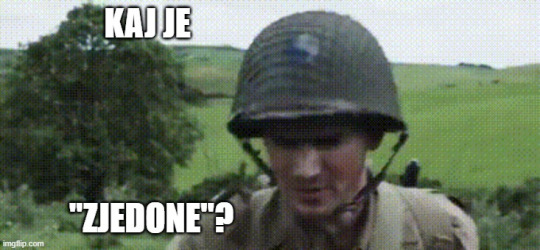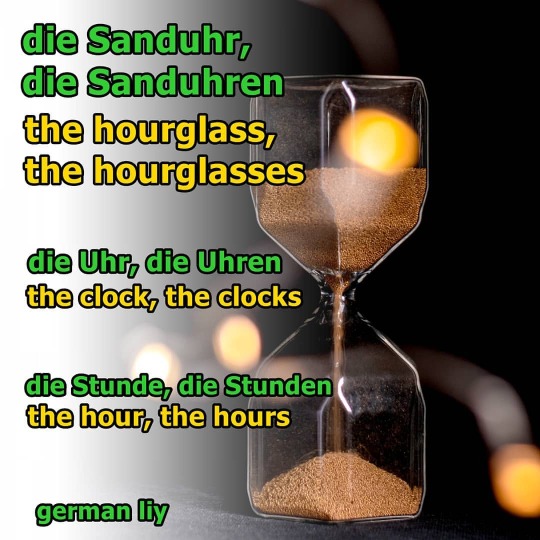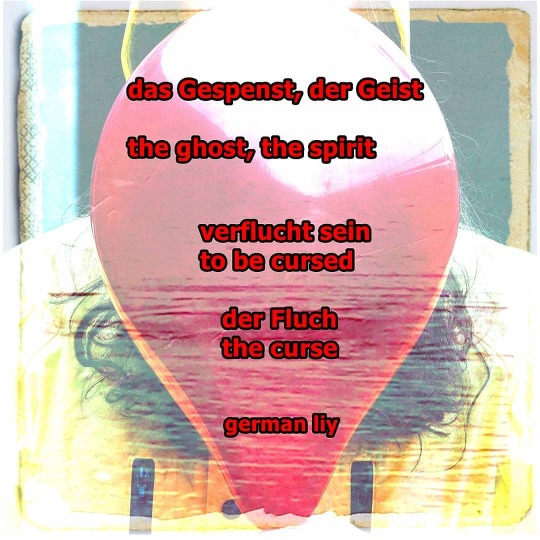#languagegeek
Explore tagged Tumblr posts
Text
Confession time: Have you ever used a thesaurus to sound a bit more ahem sophisticated? 🧐 No shame here, we've all done it! After all, why say 'happy' when you can say 'elated', 'joyous', or 'over the moon'?
#confessiontime#thesauruslove#sophisticatedwords#wordnerd#noshame#writerslife#linguistics#wordchoice#languagegeek#writerscommunity#expressyourself#wordsmith#elated#joyous#overthermoon#languagefun#writingtools
0 notes
Text
JIS _gen.hw

Unleash your creativity with Pinterest's formal English language network. Let your imagination soar with
0 notes
Text
Further to this post, since I rewatched Saving Private Ryan yesterday

*zjebano do neprepoznavnosti
#slovenian#resni problemi#on the plus side I got to languagegeek out with my Slovenian colleague over this one#regarding the proper use(s) of “the z word”#because he doesn't really speak meme#but understands that memes are my love language#just wordnerd things
0 notes
Photo

#german for an #hourglass: Die #Sanduhr #germanliy #instalanguages #instagerman #instalanguage #instagramgerman #learninggerman #speakinggerman #speakgerman #germanskills #languageenthusiast #deutsch #deutschlearning #deutschnerd #polyglots #polyglot #languagefreaks #languagegeek #languagelearners #languages #languagesonline #germanlanguage #germanvocabular #germanvocabs #germanwords #hour #germangram https://www.instagram.com/p/CJJ4lbAnW4w/?igshid=kw7r1fwmmhji
#german#hourglass#sanduhr#germanliy#instalanguages#instagerman#instalanguage#instagramgerman#learninggerman#speakinggerman#speakgerman#germanskills#languageenthusiast#deutsch#deutschlearning#deutschnerd#polyglots#polyglot#languagefreaks#languagegeek#languagelearners#languages#languagesonline#germanlanguage#germanvocabular#germanvocabs#germanwords#hour#germangram
1 note
·
View note
Text
Grammar geeks only
Let me preface this blog post by saying it’s probably not going to interest many people beyond English grammar geeks or Spanish language geeks. Deal with it. It’s my blog.
So I came to Spain with some basic traveler’s phrases, and I had maybe 5-10 verbs (have, want, is). In fact, one of the first things I learned in my Spanish class here is that the verb “to be” or “is” has two forms: permanent (es) and temporary (está). For example, “She is American” (Soy Americano) and “She is tired” (Estoy cansado) are two different verbs: one for the temporary state of being tired and one for the permanent state of being from America. I still don’t really have a solid grasp on the difference, but I like to think that is because I am very zen. What is the real line between permanent and temporary? Isn’t everything ultimately temporary in life?
In general, I find Spanish to be like English with a mixed up word order. For example, adjectives go after the noun instead of before—I think by the time we leave I will be able to do this. Right now, beyond agua fria (which I say all the time), I always wind up saying the adjective before the noun. Also, the order of the subject in relation to the verb is much less important than English. Direct objects can go in front of verbs, except when they don’t. A question can be asked with the subject or object either before or after the verb.
And then there’s the challenge of matching gender and singular/plural nouns. Word have genders here. So you just have to memorize what is masculine and what is feminine. For example, mesa means table. But if I wanted to say a “white table”, I would say mesa blanca, and if I wanted to say “white tables”, I would say mesas blancas, changing the adjective to plural. But if I wanted to say white dog (perro), I would have to change the adjective to end in “o” for blanco for masculine and match it to singular or plural. And so it goes with the word “our” for example. In English, we only have one word: our. In Spanish we have nuestro, nuestra, nuestros, nuestras for each of the four types of nouns it could modify.
The biggest shift between the two languages is in verbs. I understood the concept of conjugation, but hadn’t really done it since high school. We do not have so many verb conjugations in English, but we do have some. Most of the time English verbs do not change much between the types of the first person (I), second person (you), third person (he, she), first person plural (we), and third person plural (they). For example in English: I have, you have, she has, we have, they have. You see only one change from “has” to “have”. But in Spanish, it is: Tengo, Tienes, Tiene, Tenemos, Tienen. Every single verb form is a different word.
I find this both inefficient (because there are so many words for the same verb), but also more efficient because the subject is inside the verb itself. To say “I love you.” is te amo. My son asked why wouldn’t it be “Yo amo”, because it is “I love you” and “Yo” means “I”. Where’s the “I”? I explained that objects are not always after the verb and the subject is inside the verb. So the “I” is inside the word “amo” because it is conjugated to first-person. And the subject “te” which is the “you” is before the verb. See what I mean? It’s efficient and complicated at the same time.
I also enjoy that you can’t do word-for-word literal translations because sometimes the entire sentence structure does not work in English. For example, double negatives are required: “No quiero el gato nunca.” technically translates to “I don’t want a cat never.” But it means “I never want a cat.” And of course, those of you who speak Spanish will have noticed that earlier I skipped over a complete verb form that does not exist in English at all: the plural you (vosotros). Use vosotros when you want to say “You are doing something”, but you mean many people, not one person. The closest thing in English is “Y’all”, but again, this is something that is informal slang in English but required in Spanish.
Even better, this week we learned about a whole sentence form that simply doesn’t exist in English. “Me gusta la cama.” (I like the bed) and “Me gustan los tacos.” (I like tacos.) In this case, the verb “gusta” doesn’t conjugate as described above—it just changes from singular (gusta) to plural (gustan) based on the thing being liked. And you change the word in front of the verb based on who is doing the liking: me, te, le, nos, etc. So the object of the sentence is actually the subject of the sentence. It’s fantastic—and it totally can’t happen in English.
But truly, the thing I am most improved at is nodding at people like I know exactly what they are talking about. You can’t even tell I have no idea what they are saying. It’s very impressive. My Spanish is much improved in this sense…
Adios Amigos!
2 notes
·
View notes
Video
youtube
Kabarnos chants Psalm 136 (Psalm 135 in the Septuagint) Praise the Lord for he is good, for his mercy endures forever. The Greek Church uses a number of different tones for this Psalm, which when combined, make for a fascinating performance.
#kabarnos#greek#greeklanguage#languagegeek#psalms#psalm136#hebrew#tehillim#greekorthodox#easternorthodoxy#easternorthodox#musicblr#langblr
0 notes
Photo

Lovely tee that will get framed. I know, I'm weird like that. Also great charity if you're looking to donate. #languagelearning #languagegeek 🔘I think I figured them out, except the second to last one. Can you help me out? 🔘 1. #French 🇫🇷 2. #English 🇬🇧 🇺🇸 3. #Spanish 🇪🇸 4. #Chinese 🇨🇳 5. #Danish 🇩🇰 6. #German 🇩🇪 7. #Italian 🇮🇹 8. #Arabic 9. #Norwegian 🇳🇴 10. #Russian 🇷🇺 11. #Dutch 🇳🇱 12. 💬⁉️ 13. #Swedish 🇸🇪 🔘 #médecinssansfrontières #doctorswithoutborders #languagechallenge #allezelizabeth #aspiringpolyglot
#doctorswithoutborders#english#spanish#médecinssansfrontières#languagegeek#italian#languagechallenge#chinese#russian#aspiringpolyglot#french#dutch#swedish#arabic#german#danish#allezelizabeth#languagelearning#norwegian
0 notes
Photo

Pro bono?.. ⠀ Знаете ли вы значение этих часто используемых выражений из латыни? ~ Do you know these Latin expressions that are still widely used?🙋 ⠀ ➡️Pro bono = about work done without charge (especially about lawyers ) = работать pro bono значить оказывать услуги без гонорара, особенно о юристах. ⠀ She works with some nonprofit organizations on a pro bono basis. = Она работает в некоммерческой организации pro bono. ⠀ ⠀ ➡️Status quo = the existing state of affairs (usually about political or social issues) = текущее положение дел. ⠀ Some people always want to maintain the status quo = Некоторые люди всегда хотят сохранить статус - кво. ⠀ ⠀ ➡️De facto = In fact = фактически ⠀ She’s his de facto wife though they're not actually married . = Де-факто она – его жена, но официально они не расписаны. ⠀ ⠀ ➡️De jure = legally = юридически ⠀ The country has de facto independence now, and it will soon be recognized de jure by the world's governments . = Де-факто эта страна обрела независимость и вскоре это будет признано де-юре. ➡️In vitro = taking place in a test tube, culture dish, or elsewhere outside a living organism = в искусственном окружении, вне живого организма ⠀ Today one in 60 in America is born thanks to in vitro fertilisation (IVF) and other artificial treatments = На сегодн��шний день один из 60 детей в Америке рождается благодаря экстракорпоральному оплодотворению или другим искусственным методам. ⠀ ⠀ ➡️Per se = in itself = собственно, по существу, сам по себе ⠀ Research shows that it is not divorce per se that harms children, but the continuing conflict between parents . = Исследования показывают, что не развод сам по себе травмирует детей, а продолжающиеся конфликты между родителями. ⠀ ⠀ # latinlanguage #латынь #лингвист #лингвистика #слова #словарь #словарныйзапас #красивыеслова #учитель #учительница #язык #языки #английскийязык # language # languages # languagegeek # linguist # words # wordart # wordoftheday # photography # photography _ top # photoshoot #фотосессия #фотосессиянаприроде #фотографияприроды #москва https://www.instagram.com/p/B2btIJFHeXK/?igshid=zda7c112eeir
#латынь#лингвист#лингвистика#слова#словарь#словарныйзапас#красивыеслова#учитель#учительница#язык#языки#английскийязык#фотосессия#фотосессиянаприроде#фотографияприроды#москва
0 notes
Quote
Every time I hear the Russian language, I fall in love with it all over again. #languagelover #languagegeek
http://twitter.com/eurolinguistesk
4 notes
·
View notes
Text
Slovak alphabet + conversation
Since there arent almost any slovak language based blogs, I decided I will put here at least a small conversation, so you can get at least a hint of how its written :)
First of, the alphabet: A, B, C, Č, D, Ď, E, É, F, G, H, I, Í, J, K, L, Ľ, Ĺ, M, N, Ň, O, Ó, Ô, P, R, Ŕ, S, Š, T, Ť, U, Ú, V, W, X, Y, Ý, Z, Ž
- usually we dont use this alphabet, just the normal one without our letters (honestly, who has the time?), but so you get what letters we have and use. Unfortunately I have no idea how to explain the pronunciation - my english friends had quite a trouble to pronunce them hah. Here is the conversation:
A: Ahoj, ako sa máš? (Hi, how are you?)
B: Dobre, ďakujem. A ty? (Good, thanks. And you?)
A: Dobre. Volám sa A. Ako sa voláš? (Good. My name is A. Whats your name?)
B: Som B. Rád/a ťa spoznávam. (Im B. Nice to meet you.)
For beginning its enough, trust me. Slovak language is famous for its very hard grammar, so all I will add to this conversation: "Rád/a" -> rád - masculine; rada - feminine (there isnt long a (á) anymore in faminine). We have the neuter gender as well. Something that helps to make the grammar hard, hard, hard! :)
2 notes
·
View notes
Photo

A quote diedicated to language geeks, poets and philosophers! "Philosophy is written in this grand book, the universe, which stands continually open to our gaze. But the book cannot be understood unless one first learns to comprehend the language and read the letters in which it is composed." Galileo Galilei *** #languagegeek #language #words #meaning #philosophy #galileogalilei #written #know #universe #open #see #gaze #stars #letters #understand #learn #comprehend #read #composition #universalstory #grandbook #origin #poets #vehemenceandemergence #voiceofthebard #quotes #voiceofthevoiceless
#learn#gaze#stars#read#composition#understand#galileogalilei#voiceofthebard#written#grandbook#see#comprehend#voiceofthevoiceless#words#vehemenceandemergence#philosophy#meaning#language#quotes#letters#open#universalstory#universe#poets#languagegeek#origin#know
0 notes
Photo

Sunday fun day at the Biblioteca Nacional! Awesome exhibit by the RAE for the 300th year celebration. #nerdalert #languagegeek #lalenguaespañola #felicidadtotal
0 notes
Photo

#spooky #germanvocabs! #happyHalloween #germanliy #germanonline #learninggerman #deutschewörter #deutschenglisch #deutschfans #deutsch #englischdeutsch #englishgermanvocabulary #englishdeutsch #germanskills #halloween2020 #Learnsomething #languages #language #languagegeek #germanlanguage #germanlanguagelearning #spirit #ghost #cursed #germanwords #germanvocabular #german #halloween #instagerman https://www.instagram.com/p/CHBqoiCHVd2/?igshid=7ecuplpij21q
#spooky#germanvocabs#happyhalloween#germanliy#germanonline#learninggerman#deutschewörter#deutschenglisch#deutschfans#deutsch#englischdeutsch#englishgermanvocabulary#englishdeutsch#germanskills#halloween2020#learnsomething#languages#language#languagegeek#germanlanguage#germanlanguagelearning#spirit#ghost#cursed#germanwords#germanvocabular#german#halloween#instagerman
1 note
·
View note
Photo

#german #quote by Richard David #Precht! #germanliy #instagerman #instalearner #instadeutsch #instagramlanguages #instagramgerman #instalanguages #instaquotes #instalanguage #germanlearning #germany #languagesonline #languagefreaks #languagegeek #germanphilosopher #germanlanguage #philosophischesprüche #philosopher #philosophischezitate #philosophie #philosophischezitate #philosophyquote #philosophers #philosophy #philosophyquotes #quotes #germanquote #germanquotes https://www.instagram.com/p/CKZ1W2-HEkr/?igshid=glpzt8t6l7fi
#german#quote#precht#germanliy#instagerman#instalearner#instadeutsch#instagramlanguages#instagramgerman#instalanguages#instaquotes#instalanguage#germanlearning#germany#languagesonline#languagefreaks#languagegeek#germanphilosopher#germanlanguage#philosophischesprüche#philosopher#philosophischezitate#philosophie#philosophyquote#philosophers#philosophy#philosophyquotes#quotes#germanquote#germanquotes
0 notes
Photo

Another #german #tonguetwister! #germanliy #instagerman #deutsch #instadeutsch #instalanguages #instalanguage #polyglots #germanlearning #polyglotgerman #learninglanguages #languages #studyinggerman #Learngerman #languagelearners ##languagefans #languagenerds #languagegeek ##languageenthusiast #germanlanguage #germanphrases #germantonguetwister #germantonguetwisters #tonguetwisters https://www.instagram.com/p/CKSTfhdHZbT/?igshid=z7k78cbzz711
#german#tonguetwister#germanliy#instagerman#deutsch#instadeutsch#instalanguages#instalanguage#polyglots#germanlearning#polyglotgerman#learninglanguages#languages#studyinggerman#learngerman#languagelearners#languagefans#languagenerds#languagegeek#languageenthusiast#germanlanguage#germanphrases#germantonguetwister#germantonguetwisters#tonguetwisters
0 notes
Photo

Some #words with the same #spelling and #meaning in #english and #german! #germanliy #instagerman #instagramgerman #instadeutsch #instagramdeutsch #instalanguages #languagenerds #languagegeek #instawords #wordsgram #studyinggerman #learninggerman #germanenglish #englishgerman #englishtogerman #englischdeutsch #similarword #similarwords #similarspelling #similarmeaning #sameword #samemeaning #samespelling #samewords https://www.instagram.com/p/CKKcdBWnySl/?igshid=1jflpfdjjezs6
#words#spelling#meaning#english#german#germanliy#instagerman#instagramgerman#instadeutsch#instagramdeutsch#instalanguages#languagenerds#languagegeek#instawords#wordsgram#studyinggerman#learninggerman#germanenglish#englishgerman#englishtogerman#englischdeutsch#similarword#similarwords#similarspelling#similarmeaning#sameword#samemeaning#samespelling#samewords
0 notes